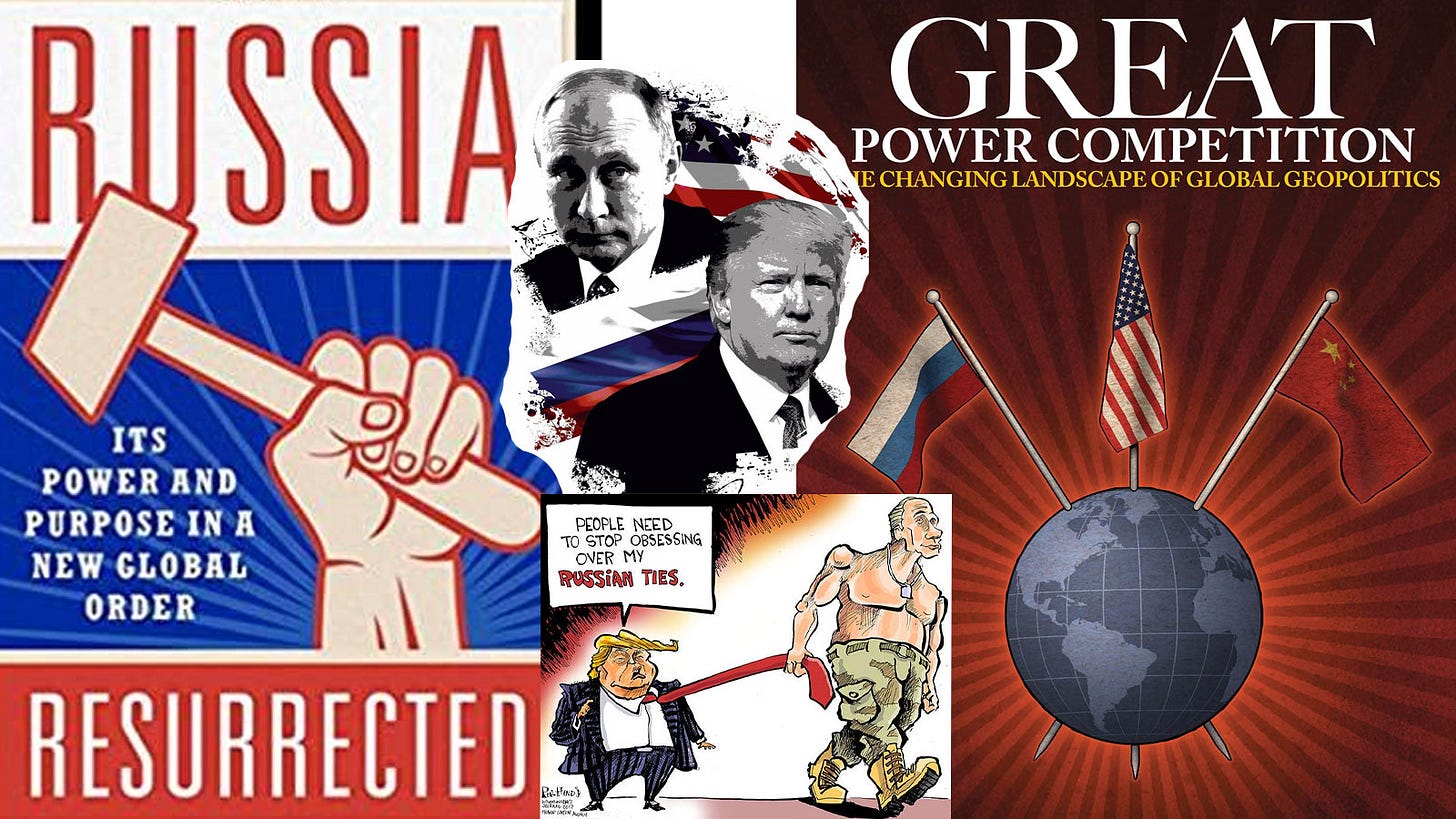The Evolution of Russia’s Global Strategy
Russia: From Cold War Defeat to Resurging Global Power
By HASE Fiero
Information-Warfare Magazine
Abstract
Russia’s rise from the ashes of the Cold War’s defeat to reclaim a position of prominence in the global hierarchy is a story of strategic resilience and adaptive governance. By mastering energy geopolitics, modernizing its military, forging new alliances, and leveraging information warfare, Russia has successfully transitioned from a Cold War loser to a formidable player in the emerging multipolar world order. This article explores the historical trajectory, strategies, and implications of Russia's resurgence.
I. Global Dominance in the 20th Century
The Bipolar World Order
During the Cold War, global dominance was defined by economic strength, military prowess, and ideological influence. The United States and the Soviet Union epitomized these qualities, shaping a bipolar order marked by:
Arms races, including the nuclear stockpiling of the U.S. and USSR.
Ideological struggles between capitalism and communism, often fought through proxy wars.
Space exploration as a display of technological superiority.
Collapse of the Soviet Union
The dissolution of the Soviet Union in 1991 marked the end of the Cold War and the triumph of the U.S.-led liberal democratic model. Russia was left grappling with:
Economic devastation, hyperinflation, and poverty.
Loss of influence as former Soviet states joined NATO.
Political instability, culminating in a loss of global prestige.
II. Post-Cold War Challenges and Russia’s Adaptive Strategies
Economic and Political Turmoil
The 1990s were a period of severe economic and social crises for Russia, characterized by:
Western-backed economic reforms that widened inequality and fueled public discontent.
NATO’s expansion, perceived as an existential threat to Russian security.
The Putin Era
Vladimir Putin’s ascent in 2000 marked a strategic pivot:
Stabilizing the Economy: Leveraging Russia’s energy reserves to restore financial independence.
Rebuilding Military Strength: Investing in nuclear modernization and advanced conventional capabilities.
Reclaiming Sovereignty: Countering Western influence by emphasizing national pride and historical identity.
III. Russia’s Resurgence in the 21st Century
Energy as a Geopolitical Weapon
Russia’s control of vast oil and gas reserves allowed it to:
Maintain leverage over European energy markets, despite sanctions.
Forge stronger ties with Asian economies, particularly China and India, by redirecting exports.
Military Modernization and Power Projection
Russia demonstrated its readiness to project power globally through:
The 2008 war in Georgia and the 2014 annexation of Crimea.
Intervention in Syria, showcasing advanced weaponry and strategic influence in the Middle East.
Strategic Alliances in a Multipolar World
Russia has cultivated partnerships through:
BRICS: Strengthening ties with emerging economies like Brazil, India, and China.
Shanghai Cooperation Organization (SCO): Aligning with China to counter Western hegemony.
Information Warfare as a Tool of Influence
Russia has excelled in hybrid warfare, combining:
Cyberattacks targeting Western democracies.
Disinformation campaigns to destabilize political systems and shape global narratives.
IV. Winning the "Second Cold War" through Narrative and Strategy
Multipolar Advocacy
Russia positions itself as a champion of a multipolar order, countering U.S. dominance by fostering coalitions that challenge Western-centric governance.
Hybrid Warfare and Asymmetric Influence
Through hybrid tactics, including economic maneuvering and cyberwarfare, Russia wields outsized influence relative to its economic size.
Revival of Nationalism
By framing its actions in Ukraine and elsewhere as protecting sovereignty and cultural heritage, Russia rallies domestic and international support.
Blunting Western Influence
Rather than direct confrontation, Russia focuses on eroding the cohesion of Western alliances through:
Exploiting divisions within NATO.
Undermining U.S. influence in regions like the Middle East and Africa.
V. Implications for Global Dominance
Rejection of Western Hegemony
Russia’s resurgence marks the end of a unipolar world and the emergence of a fragmented global order.
New Cold War Dynamics
While differing from the ideological Cold War of the 20th century, current tensions reflect a strategic rivalry rooted in power projection and influence.
Constraints and Challenges
Russia’s ambitions face significant limitations:
Economic overreliance on energy exports.
Demographic decline and brain drain.
Long-term impact of Western sanctions.
VI. Conclusion: The Lessons of Resurgence
Russia’s journey from Cold War defeat to a key player in the 21st century highlights the power of strategic adaptability. By leveraging its strengths in energy, military modernization, alliances, and information warfare, Russia has secured a place in the multipolar world.
This resurgence offers critical insights into global dominance:
Power is no longer monopolized by a single hegemon but distributed across multiple centers.
Non-conventional strategies, such as hybrid warfare and narrative control, are essential tools for influence.
As the world transitions into an era of multipolarity, Russia’s trajectory exemplifies both the challenges and opportunities of navigating a fragmented global order. It remains a pivotal force, shaping the future of international relations while redefining what it means to be a global power in the 21st century.
Published in Information-Warfare Magazine


